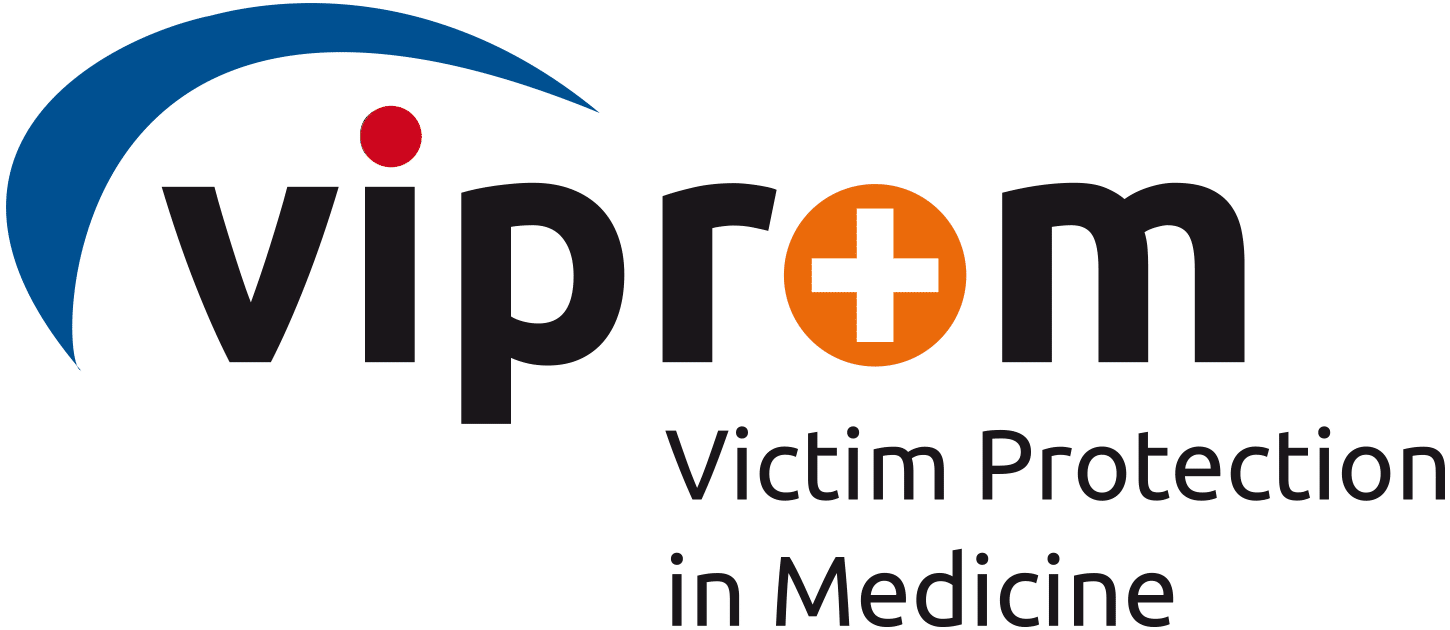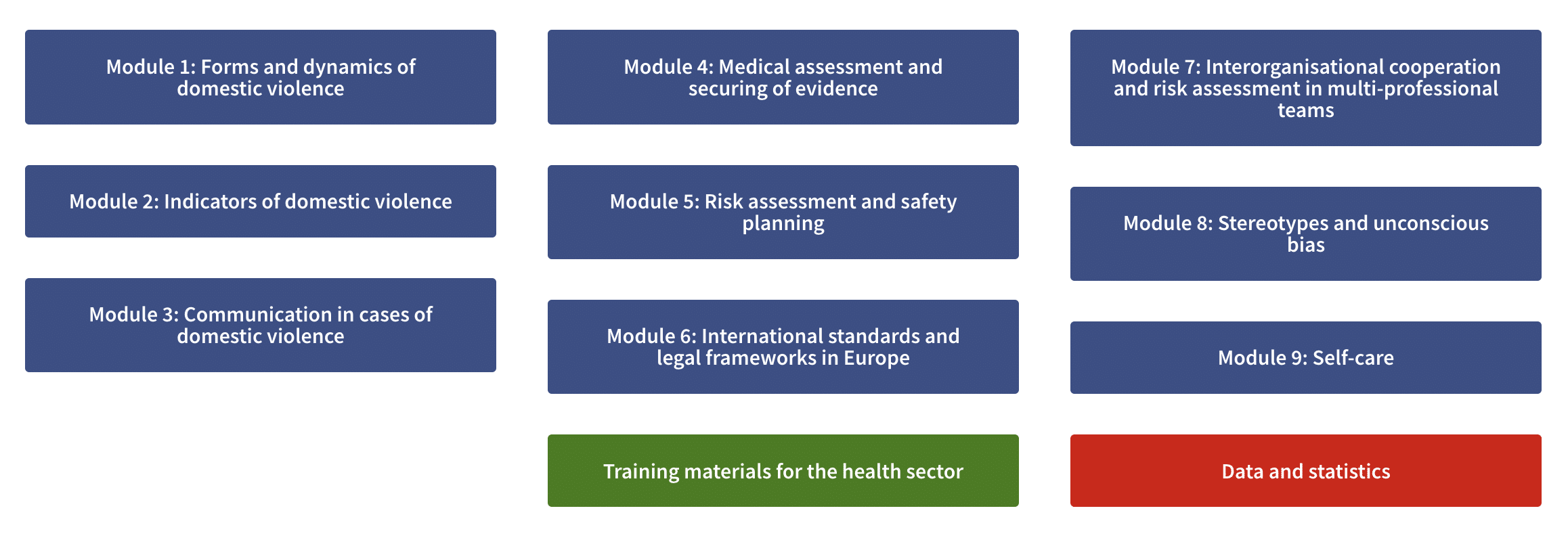
“EIGE is ready to support the full implementation of the Convention across prevention, prosecution protection and integrated policies in the form of data collection, monitoring, and the collection of good practices.”
Carlien Scheele
By focusing on standardised professional services and cross-sectoral collaboration, the VIPROM Project exemplifies the type of comprehensive approach needed to tackle domestic violence effectively. With the EU Directive as a guiding framework, we have a unique opportunity to elevate the care and support provided to victims, ensuring a safer and more just Europe for all.
Domestic violence, encompassing intimate partner violence as well as various other forms such as economic violence, digital violence, neglect, stalking, psychological violence, coercive control, and sexual violence, remains staggeringly widespread in Europe. This highlights the urgent need for changes in societal norms as well as for effective interventions to address all forms of gender-based violence. Thanks to decades of advocacy by numerous actors, such as the European Women’s Lobby (EWL) and Women Against Violence Europe (WAVE), the European Union’s institutions and lawmakers have decided to take on a trailblasing role in addressing and combatting this major human rights violation: they have recently passed a directive on combating violence against women and domestic violence.
This groundbreaking European-wide anti-violence directive, which is to be transposed by all Member States within 3 years from now, uniquely mandates comprehensive measures for prevention, protection, and prosecution. Although advocacy organisations have flagged that the directive needs more robust enforcement mechanisms and adequate funding to avoid the danger of uneven implementation across member states, they highly appreciate the directive’s holistic approach, gender-sensitive measures, and alignment with the Council of Europe’s Istanbul Convention. Importantly, it mandates the implementation of training programs for professionals, including healthcare workers, to ensure they can identify and support victims effectively. This underscores the need for standardised training and cooperation among professionals, as inadequate responses can have dire consequences for victims.
THE URGENT NEED FOR STANDARDISATION
The EU Directive, which is part of a series of forward-thinking legislation aimed at enhancing gender equality and combating domestic violence across Europe, is expected to be implemented without major challenges in the majority of Member States. Nevertheless, there is concern that some may not take its mandates seriously or may resist proper ratification. In such cases, VIPROM offers a valuable resource for physicians who can access its training individually. However, it is imperative that European institutions emphasise the necessity of adhering to high standards of care.
CROSS-SECTORAL COLLABORATION: A KEY TO SUCCESS

Image by rawpixel.com on Freepik
The positive effects of cross-sectoral collaboration are well-documented. Reports from Women Against Violence Europe (WAVE) Network and the Council of Europe’s GREVIO expert group, the monitoring and advisory expert group for the implementation of the Istanbul Convention, emphasise that coordinated efforts between medical professionals, different authorities, specialist service providers and NGOs lead to more effective interventions and better outcomes for victims. Such multi-agency collaboration ensures that all aspects of a victim’s situation are addressed, from immediate medical needs to long-term safety planning and psychological support.
The European Institute for Gender Equality’s (EIGE) Collection of Good Practices initiative has been a positive and crucial point of reference, showcasing successful interventions and strategies across Europe and significantly contributing to raising awareness and improving responses to various gender-based challenges. However, this collection does not currently focus on the issue of gender-based violence, which is a significant omission. Furthermore, the initiative has become less active in recent years, which seems to be a missed opportunity given the availability of groundbreaking pieces of legislation like the new EU Directive on combating violence against women and domestic violence. Reviving and expanding the Good Practices collection to include training courses and methodologies specifically designed to achieve standardised service provision for victims of domestic violence would provide invaluable support for the implementation of high standards set by the directive, ensuring consistency and effectiveness in tackling domestic violence across Europe. By actively promoting and disseminating these best practices, EIGE could help Member States bridge knowledge gaps, foster cross-sectoral collaboration, and empower professionals to deliver adequate care to victims all across the EU. After the EU’s passing of such important legislation, many European experts and NGOs are eagerly looking to EIGE for guidance and inspiration in this area.
THE VIPROM PROJECT: SETTING THE STANDARD
The VIPROM Project stands as an exemplary initiative in this regard, uniting best practices in the training of medical professionals. Healthcare professionals play a crucial role in identifying and addressing cases of domestic violence, often serving as the first point of contact for victims. Significantly, the VIPROM project empowers these professionals to recognise the signs of domestic violence, initiate conversations with patients, and provide appropriate support and referrals in order that none of the victims “falls through the cracks”. By integrating VAW training into medical education and practice, VIPROM ensures that healthcare settings become safe and supportive spaces for victims to disclose their experiences.
The project offers a robust framework that emphasises evidence-based, gender-sensitive, and trauma-informed care, ensuring that victims receive the appropriate support and treatment. VIPROM’s training modules provide a comprehensive understanding of the socially embedded nature of domestic violence, highlighting the necessity for all medical sector professionals to recognise the various forms of violence and their societal backgrounds.
A key advantage of VIPROM is its emphasis on self-awareness among medical professionals. The training encourages participants to consciously realise how personal stereotypes and biases may limit their approach to victims. By fostering a mindset aimed at supporting and empowering victims, the project seeks to improve the quality of the care provided. VIPROM’s materials are rich with practical examples and feature engaging cartoons that depict possible scenarios and communication strategies with patients. These resources aim to guide medical professionals towards the desired outcomes of medical care and effective cross-sectoral cooperation.
VIPROM’s e-learning platform also stands out because it is designed to be easy to use for trainers teaching the topic of DV, appealing, and simple to search through, making it a highly accessible resource for busy professionals. The teaching videos are particularly effective, offering a great way for instance to learn about the common forms of domestic violence or how to address them within a comprehensive, victim-centred treatment approach. To cap it all off, VIPROM includes self-assessment tests for trainee´s after trainings to help solidify the learning progress.
CONCLUSION: EMBRACING THE DIRECTIVE’S POTENTIAL
The EU Directive on combating violence against women and domestic violence represents a groundbreaking opportunity to raise the standard of medical and other professional services for victims. VIPROM’s exemplary character serves as a model for other professional training projects, demonstrating the importance of evidence-based, gender-sensitive, and trauma-informed care.
It is crucial that all Member States commit to the proper implementation of this directive. The stakes are high: the lives and well-being of countless victims depend on it. By embracing the directive’s potential and supporting projects like VIPROM, we can ensure that victims of domestic violence receive the comprehensive, compassionate, and effective care they deserve.
MORE INFORMATION ON DOMESTIC VIOLENCE
If you are interested to learn more about domestic violence in the health sector, please visit our European training platform on domestic violence.
REFERENCES
European Union: Directive on Combating Violence Against Women and Domestic Violence. Available at: [EU Directive] (https://eur-lex.europa.eu/legal-content/EN/TXT/?uri=CELEX%3A32022L0013).
World Health Organisation: WHO Multi-country Study on Women’s Health and Domestic Violence against Women. Available at: [WHO Multi-country Study](https://www.who.int/reproductivehealth/publications/violence/24159358X/en/).
European Union Agency for Fundamental Rights (FRA): Violence against Women: An EU-wide Survey. Available at: [FRA Violence against Women Survey] (https://fra.europa.eu/en/publication/2014/violence-against-women-eu-wide-survey-main-results-report).
ABOUT THE AUTHOR

Réka Sáfrány is President of the Hungarian Women’s Lobby (HWL) and previously served as President of the European Women’s Lobby for two years (2021-2023). She holds an MA in Gender Studies from Central European University, Budapest, and an MA in English and German Literature and Linguistics from ELTE University, Budapest. In her 20 years of experience as a policy and advocacy expert on gender equality, violence against women has been a prominent issue alongside other topics such as women’s political participation and gender and media.
 This project has received co-funding from the European Union’s CERV-2022-DAPHNE programme under grant agreement No. 101095828.
This project has received co-funding from the European Union’s CERV-2022-DAPHNE programme under grant agreement No. 101095828.
Newsletter
Please subscribe here for the VIPROM newsletter:

